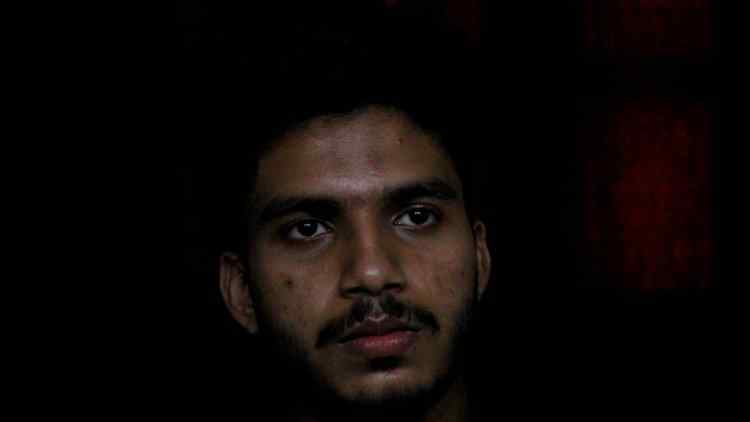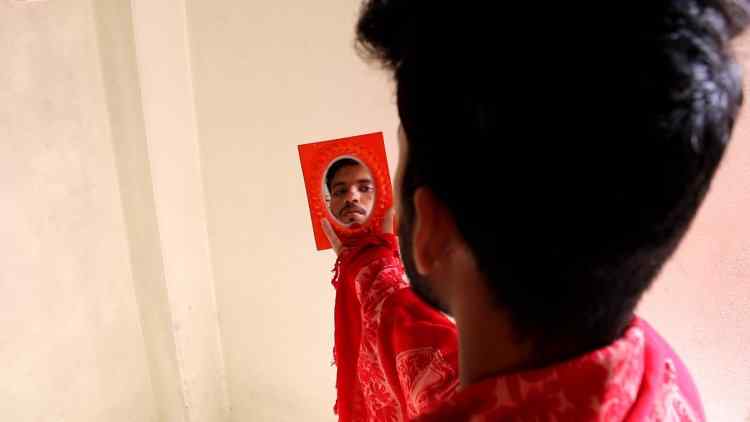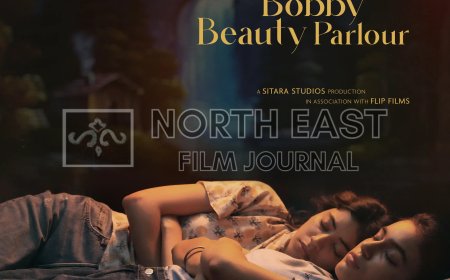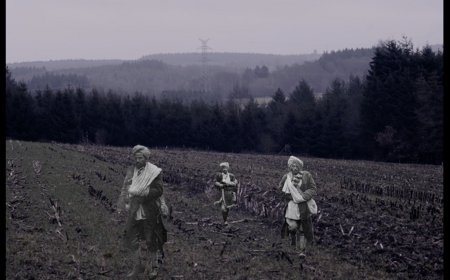Interview with Aditya Modak on his short film The Killer (2023)
In this interview with noted Indian film critic, Dipankar Sarkar, Aditya Modak discusses his experiences as well as the philosophical considerations that went into the making of this film.

Noted Indian film critic and an alumnus of FTII, Pune, Dipankar Sarkar interviews Aditya Modak, the young filmmaker from Tripura.
Aditya Modak is a young filmmaker from Tripura, whose short film The Killer (2023) offers an insight into the mind of a hired killer plagued by a barrage of unrelated ideas that suddenly enters his consciousness as he waits for his next assignment. The film presents a close examination of a distressed person's psychological state. Through its exploration of cinema's style, it offers an observation of the medium. At Northeast Film Festival- 2023, Mumbai, the film has won the Bronze award for Best Direction Short Film. In this interview Aditya shares his experience as well as his philosophical choices behind the making of this film.

How did you develop an interest in filmmaking?
It was a slow process. It had its inception when I rewatched Pather Panchali (1955) in 2018 and then read Satyajit Ray's memoir "My Years With Apu," which motivated me greatly. It was through the Apu Trilogy and this book that I started considering filmmaking as something I could try, but when I watched Lost Highway in late 2018, something clicked in my head - it was as if a switch was turned on. I remember staring at my blank computer screen several minutes after the credits had stopped rolling. I could still see the shots from the film, I could still hear the music. It was on that very day that I realized I had to become a filmmaker. A few weeks after that, I came across a video clip on YouTube where Quentin Tarantino says, "If you truly love cinema with all your heart, and with enough passion, you can't help but make a good movie." There was no doubt in my mind about my love and passion for cinema, so I decided to just go for it. So, yes, I'll say it was a gradual process.
What was your inspiration behind the making of this film?
I was at home in Agartala during my semester break, and I wanted to make a short film using some of the knowledge I was gathering in my Film Studies course at Jadavpur University. I thought about the several possibilities of the cinematic medium to transgress its boundaries, and I wanted to try experimenting with that. Can I make a film which could posit itself somewhere between the fiction film format and the video essay format? And how can I depict raw, unadulterated time through cinema? Questions like these inspired me to start writing a screenplay, which eventually ended up becoming The Killer.
From being a film about the conundrums of an assassin the film becomes a tale of existential crisis. How did you develop the idea?
I wanted the film to mislead the audience into believing it's a thriller. Early in the film, the assassin says he's waiting for his victim, foreshadowing an altercation. But as the film progresses, it becomes clear that it's definitely not a thriller, and it's also not a film which follows the traditional cinematic norms. Films provide viewers the satisfaction of watching what they, as spectators, want to watch. Action has become something of an absolute necessity nowadays. I wanted my film to be about passivity. About a shared experience. This film is about sharing an experience. You share the experiences of the protagonist. You don't get to experience what you want to experience, but you get to be a part of what the character experiences. You see what's important to him. His experiences, his memories, his thoughts get primacy over what the spectator or the popular narrative demands.
What was the purpose behind using the long clip from Andy Warhol's Empire (1965)?
Empire is a film about time passing by. But it's done in the most ridiculous way, and I find it absolutely incredible. Imagine a film like that made in the present time. Our attention span has reduced, dangerously reduced, in fact, and we have been unconsciously trained to watch fast-paced action on screen. Any kind of action. So, using a sped-up clip of Empire in my film is not just a critique of the "elitist" standards of art, but a homage to Andy Warhol. More importantly, it's about a shared experience. The assassin watches the film - he watches time passing, and we share this experience with him.
How long did you take to complete the film?
I had taken it up as a challenge to complete shooting the film within one day. And I managed to pull that off. The editing took a while. So, starting from writing the screenplay to exporting the final version, it took me about a week.
Share your thoughts on the current state of filmmaking in Tripura?
There are a few people like me who are trying to make films of various kinds, touching different spheres of the Tripuri life, culture, and folklore, but apart from the music video scene, regionally-made films are yet to achieve mainstream recognition within the state. Our state seriously lacks a proper film culture, which I believe is absolutely necessary for establishing or mobilising a film industry and, of course, for making good films. For people to really care about the local filmmakers, there has to be proper awareness and knowledge about cinema, about its possibilities. Compared to the other northeastern states, Tripura is still underdeveloped in the area of filmmaking, but I'm optimistic about the future. In fact, I wanted "The Killer" to be a kind of a testimonial about the possibilities of filmmaking in a place that lacks infrastructure and financial backing.
What are your plans for the future?
I have a few plans at the moment. Like I want to make an experimental documentary film and a multilingual feature-length film based on Tripura. If things go according to plan, then I should be able to start working on them pretty soon. My ultimate goal is to establish a proper film culture in Tripura and to mobilise the Tripuri film industry. I wish to see the cinema of my state reach the international stage, and all my efforts are for this cause.
Share your experience of participating at the North East Film Festival recently held in Mumbai?
The Northeast Film Festival was my first ever film festival, and also my first time in Mumbai. It was an amazing, amazing experience. It was a dream come true, actually, getting to see my film on the big screen. Winning the best director award was a surreal moment. But the best part about attending the festival was that I got the chance to meet and interact with some of the best filmmakers and artists from the Northeast. It was a learning experience for me. I received a lot of helpful advice from experienced, veteran filmmakers. Everybody in the festival was extremely kind to me. I had the time of my life at NFDC. The Festival has given me an enormous motivation to keep working towards my goals. And I wish to keep working towards them.
***
What's Your Reaction?
































































